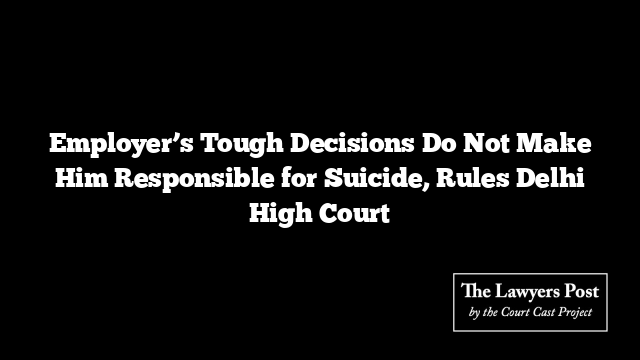The Delhi High Court has underscored that the burden of criminal liability cannot be placed on employers for an employee’s suicide unless there is clear intent to instigate such a tragic outcome. The observation arose while quashing summons against Dr. G.K. Arora, former principal of BR Ambedkar College, Delhi University, and senior assistant Ravinder Singh, connected to a 2013 case where a woman employee ended her life.
Justice Amit Sharma remarked that employers may sometimes make difficult or severe decisions as part of their roles, but these, in themselves, do not amount to abetment unless they are driven by a deliberate effort to incite harm. He emphasized that responsibility under Section 306 of the Indian Penal Code, which deals with abetment of suicide, demands evidence of an active, malicious intent.
The case involved a woman who self-immolated near the Delhi Secretariat and accused various figures, including Arora, the university’s Vice Chancellor, and even former Chief Minister Sheila Dikshit, of neglecting her complaints and contributing to her emotional distress. The woman had claimed she suffered from an overwhelming workload and persistent harassment, yet investigations into her complaints had been formally closed.
The court highlighted a significant time lapse of over a year between her dismissal in 2012 and her eventual death, noting there was no interaction between her and the petitioners in this period. Additionally, the authorities, including multiple commissions and the National Commission for Women, had found no substantive evidence to hold Arora and Singh culpable.
In dismissing the trial court’s order, the High Court reinforced that the allegations and a general sense of grievance were insufficient for a criminal charge. The judgment affirms a nuanced view of workplace dynamics, drawing a line between harsh management decisions and genuine criminal incitement.





